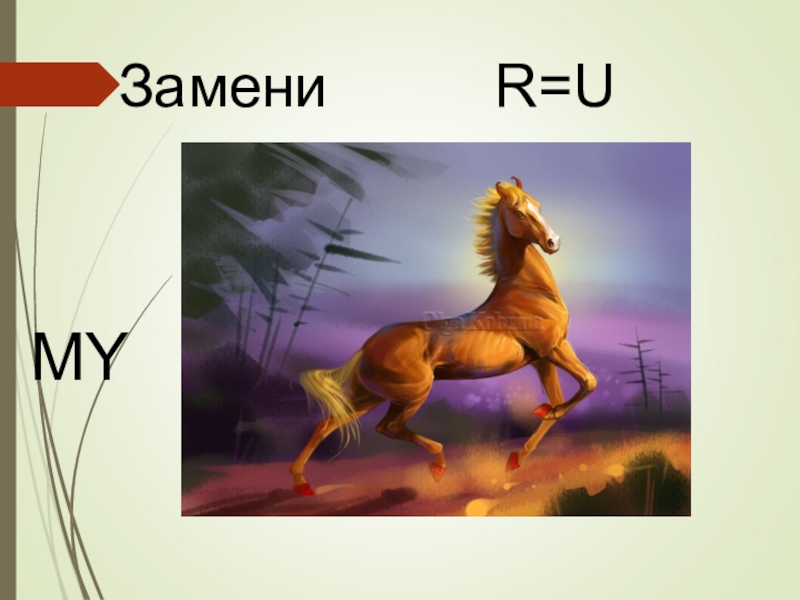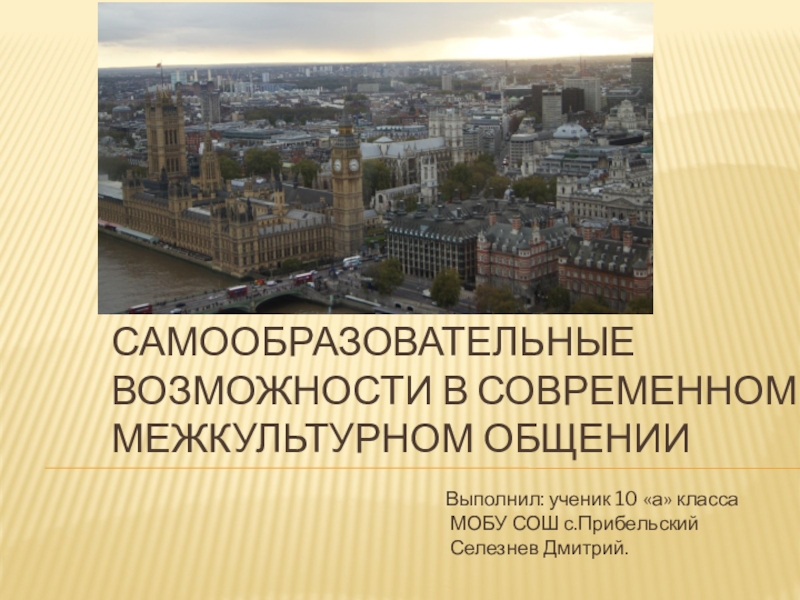- Главная
- Разное
- Образование
- Спорт
- Естествознание
- Природоведение
- Религиоведение
- Французский язык
- Черчение
- Английский язык
- Астрономия
- Алгебра
- Биология
- География
- Геометрия
- Детские презентации
- Информатика
- История
- Литература
- Математика
- Музыка
- МХК
- Немецкий язык
- ОБЖ
- Обществознание
- Окружающий мир
- Педагогика
- Русский язык
- Технология
- Физика
- Философия
- Химия
- Шаблоны, фоны, картинки для презентаций
- Экология
- Экономика
Презентация, доклад по английскомй языку на тему Walt Whitman
Содержание
- 1. Презентация по английскомй языку на тему Walt Whitman
- 2. Walt Whitman is
- 3. Walt Whitman was born
- 4. Not much is known
- 5. Of the twelve poems (the
- 6. For the second edition of
- 7. The third edition of
- 8. Soon after
- 9. The impact of the war on
- 10. Слайд 10
- 11. In his last
- 12. THANK YOU FOR ATTENTION!
Walt Whitman is generally considered to be the most important American poet of the nineteenth century. He wrote in free verse (not in traditional poetic
Слайд 2 Walt Whitman is generally considered to be the most
important
American poet of the
nineteenth century.
He wrote in free verse (not in traditional poetic form), relying heavily on the rhythms of common American speech.
Слайд 3 Walt Whitman was born on May 31, 1819,
in West Hills,
Long Island, the second of nine
children.
His family soon moved to
Brooklyn, where he attended school for a few years.
Young Whitman took to reading at an early age.
By 1830 his formal education was over, and for the next five years he learned the printing trade.
Слайд 4 Not much is known of Whitman's literary activities
that can account for his sudden transformation (change) from journalist and hack writer into revolutionary poet.
The first edition of Leaves of Grass (1855) opened with a rather casual portrait of Whitman, the self-professed "poet of the people," dressed in workman's clothes.
Слайд 5 Of the twelve poems (the titles were added later),
"Song of Myself," "The Sleepers," "There Was a Child Went Forth," and "I Sing the Body Electric" are the best known today.
In these Whitman turned his back on the literary models of the past.
He stressed the rhythms of common American speech, delighting in informal and slang expressions.
Слайд 6 For the second edition of Leaves of Grass (1856),
Whitman added twenty new poems to his original twelve. With this edition, he began his lifelong practice of adding new poems to Leaves of Grass and revising those previously published in order to bring them into line with his present moods and feelings.
Слайд 7 The third edition of Leaves (1860) was brought
out by a Boston publisher, one of the few times in his career that Whitman did not have to publish Leaves of Grass at his own expense.
This edition, referred to by Whitman as his "new Bible," contained the earlier poems plus one hundred forty-six new ones.
For the first time Whitman arranged many of the poems in special groupings, a practice he continued in all later editions.
Слайд 8 Soon after the outbreak of the
Civil War (1861–65; a war between regions of the United States in which Northern forces clashed with those of the South), Whitman went to Virginia to search for his brother George, reported wounded in action. Here Whitman experienced the war firsthand. He remained in Washington, D.C., working part-time in the Paymaster's Office.
He devoted many long hours serving as a volunteer aide in the hospitals in Washington, ministering to the needs of the sick and wounded soldiers. His daily contact with sickness and death took its toll. Whitman himself became ill with "hospital malaria." Within a few months he recovered.
He devoted many long hours serving as a volunteer aide in the hospitals in Washington, ministering to the needs of the sick and wounded soldiers. His daily contact with sickness and death took its toll. Whitman himself became ill with "hospital malaria." Within a few months he recovered.
Слайд 9 The impact of the war on Whitman
was reflected in
his separately
published Drum-Taps (1865).
In such poems as "Cavalry
Crossing a Ford," "The Wound-
Dresser,“ "Come Up from the Fields Father,"
"Vigil Strange I Kept on the Field One Night,"
"Sight in Camp in the Daybreak Gray and Dim,"
and "Year That Trembled and Reel'd Beneath Me,“ Whitman caught with beautiful simplicity of statement the horror, loneliness, and anguish caused by the war.
published Drum-Taps (1865).
In such poems as "Cavalry
Crossing a Ford," "The Wound-
Dresser,“ "Come Up from the Fields Father,"
"Vigil Strange I Kept on the Field One Night,"
"Sight in Camp in the Daybreak Gray and Dim,"
and "Year That Trembled and Reel'd Beneath Me,“ Whitman caught with beautiful simplicity of statement the horror, loneliness, and anguish caused by the war.
Слайд 10
Following the Civil
War and the publication of the fourth edition, Whitman's poetry became increasingly preoccupied with themes relating to the soul, death, and immortality (living forever
Слайд 11
In his last years Whitman received the
respect due a great literary figure and personality. He died on March 26, 1892, in Camden, New Jersey. Leaves of Grass has been widely translated, and Whitman's reputation is now worldwide.

















